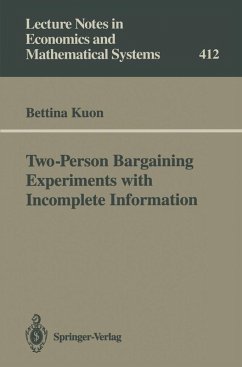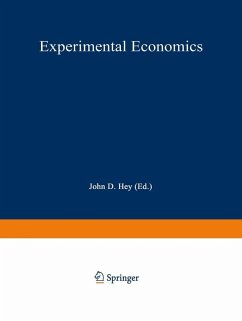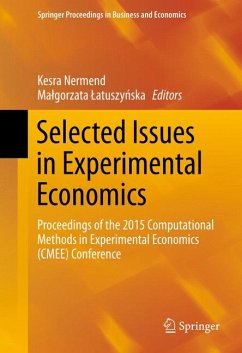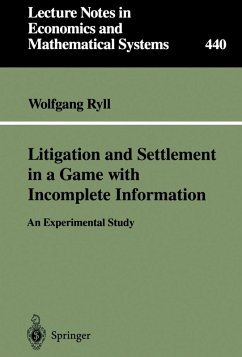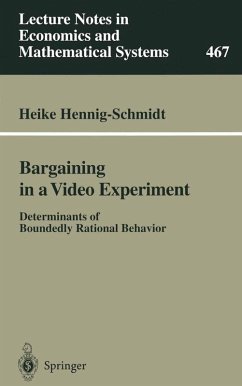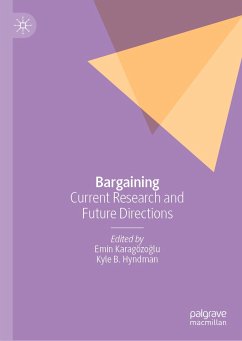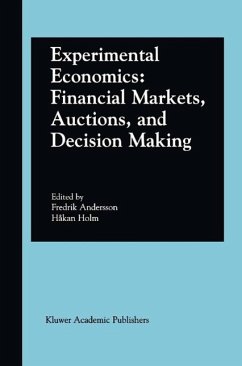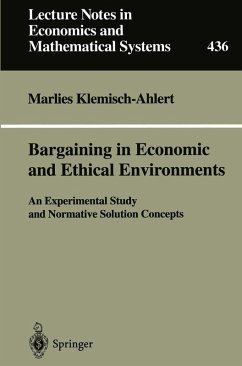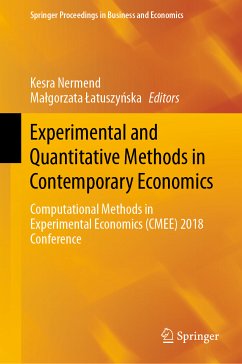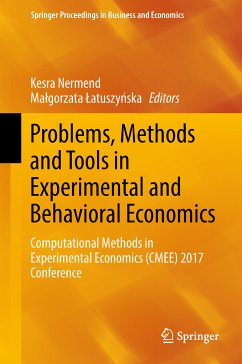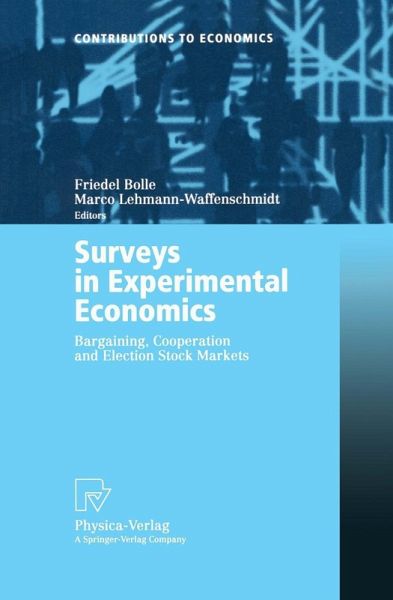
Surveys in Experimental Economics (eBook, PDF)
Bargaining, Cooperation and Election Stock Markets
Redaktion: Bolle, Friedel; Lehmann-Waffenschmidt, Marco
Versandkostenfrei!
Sofort per Download lieferbar
40,95 €
inkl. MwSt.
Weitere Ausgaben:

PAYBACK Punkte
20 °P sammeln!
Experimental Economics has experienced a steadily growing interest by economists during the last decade. This may not surprise since laboratory and field experiments obviously provide a further valuable source of empirical evidence of economic behavior besides statistics, econometrics, polls, interviews and simulations. In an overview of the recent developments in Experimental Economics, the present book concentrates on three central themes standing in the actual research focus: bargaining, cooperation and election markets. For each one of these topics the volume presents several state-of-the-...
Experimental Economics has experienced a steadily growing interest by economists during the last decade. This may not surprise since laboratory and field experiments obviously provide a further valuable source of empirical evidence of economic behavior besides statistics, econometrics, polls, interviews and simulations. In an overview of the recent developments in Experimental Economics, the present book concentrates on three central themes standing in the actual research focus: bargaining, cooperation and election markets. For each one of these topics the volume presents several state-of-the-art survey articles by experts in the field, accompanied by detailed comments. While the experimental approach sheds new light on the microeconomic standard topics of bargaining and cooperation, the election market approach as a new field may provide better forecasts for political elections - and for soccer World Championships.
Dieser Download kann aus rechtlichen Gründen nur mit Rechnungsadresse in A, B, BG, CY, CZ, D, DK, EW, E, FIN, F, GR, HR, H, IRL, I, LT, L, LR, M, NL, PL, P, R, S, SLO, SK ausgeliefert werden.



